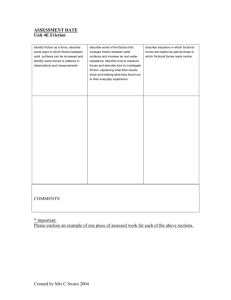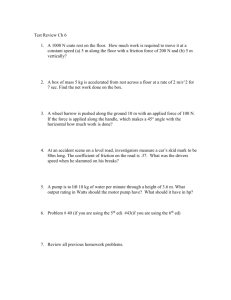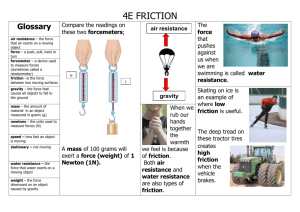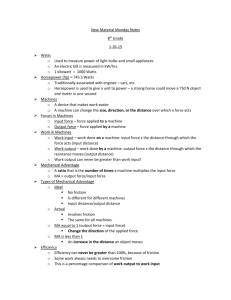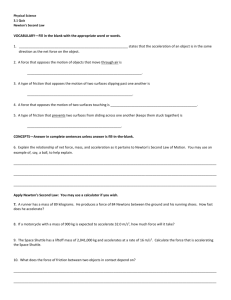How Do Forces Affect Motion? Powerpoint
advertisement
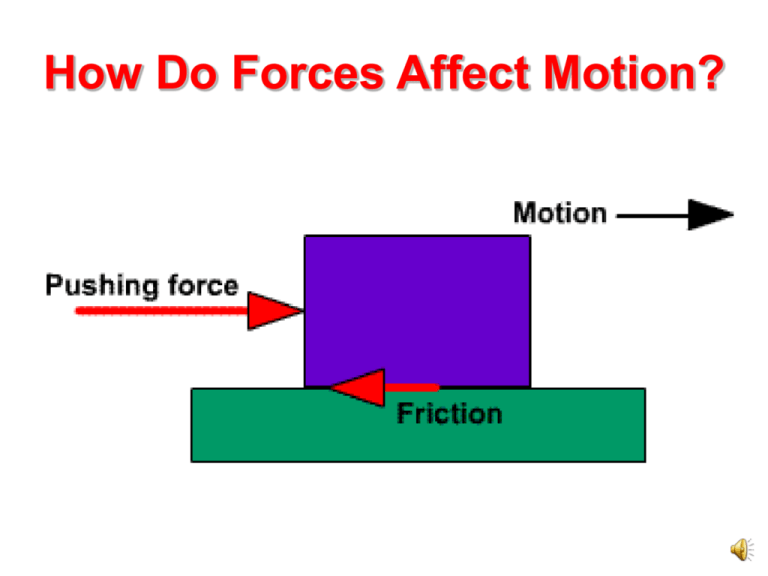
How Do Forces Affect Motion? Forces How many times each day do you push or pull something to make it move? Each push or pull is a force. Forces can be big or small. The force a crane uses to lift a truck is huge. The force of a feather landing on the ground is tiny. Forces Are Important Forces make objects start moving, stop moving, speed up, slow down, or change direction. A large force can cause a large change in speed or direction. A small force may produce a smaller change. If you tap a basketball with your finger, the ball hardly moves. If you kick the ball, it rolls away quickly. How Forces Are Measured Forces are measured in units called newtons. This unit is named after the British scientist Sir Isaac Newton (1652-1727). Newton explained how force and motion are related. To lift a mass of one kilogram on Earth requires 9.8 newtons of force. Friction Think again about the basketball you kicked to make it roll. Does it roll forever? No, a force brings it to a stop. That force is friction. Friction works against motion. Friction acts between surfaces of objects that touch. The surfaces rub against each other, slowing the object or stopping it from moving. Friction How much friction there is depends on the objects. You can slide easily down a snowy hill because there is little friction between the smooth snow and the plastic bottom of the slide. Friction Can Be Helpful Friction can be a helpful force. A gymnast uses chalk on his hands to increase friction and prevent his hands from slipping off the parallel bars. Inertia If there were no friction, would a moving object stop moving? You may be surprised to learn that the answer is no! A moving object will continue to move until a force is applied to it. In a similar way, an object at rest will not start to move unless a force acts on it. This property of matter is called inertia. friction • A force between surfaces that slows objects down or stops them from moving. Back to text
